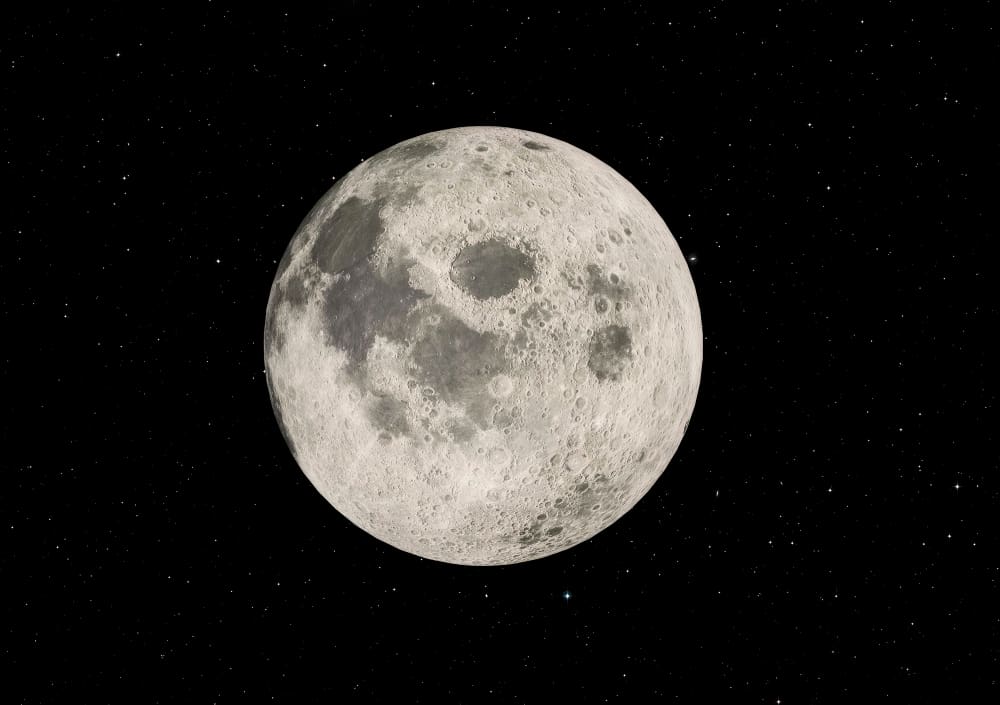In the celestial cabinet of Vedic Astrology, while the Sun is the undisputed king representing the soul, the Moon, or Chandra, is the queen who governs the kingdom of the mind. The Moon is arguably the single most important planet in a birth chart for understanding an individual’s personal experience of life, as it dictates our consciousness, emotional responses, and overall sense of well-being. It is the cosmic mirror reflecting our innermost feelings, subconscious patterns, and the flow of our daily existence. Its placement by sign (Rashi), house (Bhava), and lunar mansion (Nakshatra) at the moment of birth provides the fundamental key to unlocking our mental and emotional constitution, profoundly influencing how we perceive and interact with the world around us.
Unlike the Sun (Surya), which represents our constant, unchanging soul (Atma), the Moon represents the mind (Manas). The mind is fluid, receptive, and ever-changing, just like the Moon’s waxing and waning phases. This makes Chandra the primary indicator of our personality as it is experienced on a day-to-day basis. It governs our moods, instincts, intuition, and the memories that shape our reactions. Where the Sun is our core identity, the Moon is how we feel about that identity.
Furthermore, the Moon is the primary karaka, or significator, for the mother. The relationship with our mother and the nurturing we received in early childhood are deeply encoded in the Moon’s position in our chart. It represents our need for comfort, security, and emotional sustenance, shaping our ability to nurture both ourselves and others throughout our lives.
The Mind’s Residence: The Moon in the Twelve Houses
The house placement of the Moon reveals the primary area of life where our emotional focus lies. It shows where we seek comfort and where our minds are most active and invested. While its placement in any house is significant, certain positions are particularly revealing.
Moon in the 1st House (Lagna)
When the Moon is in the 1st House of self, the individual’s identity is fused with their emotions. These people are typically highly sensitive, empathetic, and receptive to the energies around them. Their moods can be changeable, and their sense of self can fluctuate with their feelings. They often have a nurturing presence and a strong connection to the public.
Moon in the 4th House (Sukha Bhava)
Here, the Moon is in its own house of home, mother, and inner happiness, giving it directional strength (Dig Bala). This is a powerful placement for emotional contentment and a strong psychological foundation. These individuals are deeply connected to their mother, home, and homeland, and they find their greatest peace in a secure and comfortable domestic environment.
Moon in the 7th House (Kalatra Bhava)
With the Moon in the 7th House of partnership, emotional fulfillment is sought through relationships. These natives need a partner who is nurturing, understanding, and emotionally available. Their own emotional state is often a direct reflection of the harmony or discord within their primary relationships. They are caring partners but can be prone to emotional dependency.
Moon in the 10th House (Karma Bhava)
The 10th House governs career and public life. A Moon placed here indicates a profession that involves the public, nurturing, or caregiving. Fields like nursing, hospitality, social work, or any career dealing with food, liquids, or housing are common. These individuals are emotionally invested in their work and their public reputation is very important to their sense of well-being.
Gauging Lunar Strength: Dignity and Affliction
The condition of the Moon is critical to its ability to deliver positive results. A strong, well-placed Moon grants emotional stability, intuition, and a positive mindset. A weak or afflicted Moon can lead to emotional turmoil, anxiety, and psychological distress.
Paksha Bala: The Power of Phase
The Moon’s strength is uniquely tied to its phase. A waxing Moon (Shukla Paksha), moving from new to full, is considered benefic and strong. It promotes growth, optimism, and mental clarity. A waning Moon (Krishna Paksha), moving from full to new, is considered weaker. A Moon very close to the Sun (a new Moon or Amavasya) is the weakest and is considered a functional malefic, as the mind’s light is obscured.
Dignity by Sign (Rashi)
The Moon’s strength is also determined by the sign it occupies.
- Exaltation: The Moon is exalted in Taurus (Vrishabha). Here, the emotional nature becomes stable, grounded, and patient. It grants an appreciation for beauty, comfort, and the sensual pleasures of life.
- Own Sign: The Moon is in its own sign in Cancer (Karka). This placement makes a person deeply sensitive, nurturing, intuitive, and protective of their loved ones.
- Debilitation: The Moon is debilitated in Scorpio (Vrischika). The emotional waters here are deep, intense, and often turbulent. This can lead to jealousy, secrecy, psychological complexes, and a fear of vulnerability. However, if the debilitation is cancelled by a rule known as Neecha Bhanga Raja Yoga, this same position can grant profound psychological insight and resilience.
Conjunctions and Aspects
Planets conjunct or aspecting the Moon will color its nature. A conjunction with Jupiter brings wisdom and optimism. A conjunction with Venus enhances creativity and charm. However, conjunctions with malefics can create significant challenges.
Moon-Saturn: This combination, known as Vish Yoga or Punarphoo Yoga, can create a pessimistic, fearful, and sometimes depressive mindset. It instills a sense of emotional lack and hardship.
Moon-Rahu: This forms Grahan Yoga (Eclipse Yoga) and can cause psychological disturbances, phobias, and amplified, insatiable desires. The mind can be clouded by illusion and foreign influences.
Moon-Ketu: This can lead to psychic abilities but also a sense of emotional detachment, confusion, and strange psychological experiences. It disconnects the mind from worldly feelings.
The Nakshatras: The Moon’s True Home
Beyond the zodiac signs, the Moon’s position in one of the 27 Nakshatras, or lunar mansions, provides a far more nuanced and precise understanding of the mind. The Nakshatra the Moon occupies at birth is called the Janma Nakshatra and is the cornerstone of personality analysis and predictive astrology.
For example, a Moon in Rohini Nakshatra (located entirely within Taurus) is in its most favored position. It bestows immense creativity, charm, stability, and a love of all things beautiful and luxurious. In contrast, a Moon in Jyestha Nakshatra (in Scorpio) creates a mind that is wise and protective but also prone to jealousy, arrogance, and internal turmoil.
The Vimshottari Dasha, the most widely used system for timing life events, is entirely calculated from the position of the Moon in its Nakshatra at birth. This demonstrates the Moon’s central role not just in defining our character, but in mapping out the timing of our entire life path.
Harmonizing with Chandra: Remedies for a Weak Moon
When the Moon is weak or afflicted in a chart, Vedic Astrology offers several remedies to strengthen its positive qualities and mitigate its negative effects. These practices help to soothe the mind and cultivate emotional balance.
Mantra and Worship: Chanting the Moon’s beeja (seed) mantra, “Om Shram Shreem Shraum Sah Chandraya Namah,” especially on Mondays, is a powerful way to align with lunar energy. Worshipping Lord Shiva, who wears the crescent moon on his head, is also highly recommended.
Gemstones: The primary gemstone for the Moon is a natural Pearl (Moti), set in silver and worn on the little finger. A Moonstone can be used as a substitute. It is crucial to consult a qualified astrologer before wearing any gemstone, as it can have adverse effects if not suited to the individual’s chart.
Lifestyle Adjustments: Simple acts can pacify an afflicted Moon. Showing respect and care for one’s mother or motherly figures is paramount. Practicing meditation, especially focusing on the breath, calms the mind. Spending time near bodies of water, wearing white clothing, and ensuring adequate hydration also resonate with the Moon’s cool, liquid nature.
Charity: Donating white items like milk, rice, sugar, or silver on Monday evenings is an effective form of remedy. This act of giving helps to balance the receptive energy of the Moon.
In conclusion, the Moon is far more than a satellite orbiting the Earth; in the language of Vedic Astrology, it is the very consciousness through which we experience life. It is the gentle queen to the Sun’s radiant king, governing the tides of our emotions, the depths of our subconscious, and the rhythm of our existence. Understanding the state of Chandra in our birth chart is the first and most vital step toward self-awareness, emotional intelligence, and inner peace. To nurture one’s Moon is to nurture one’s mind, and in doing so, we create a foundation of stability from which all other aspects of life can flourish.








